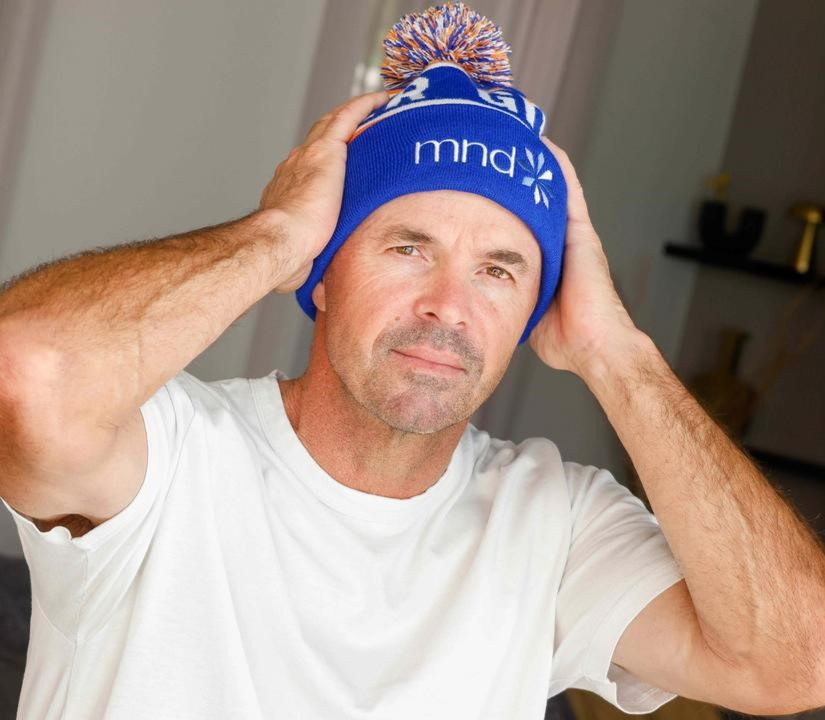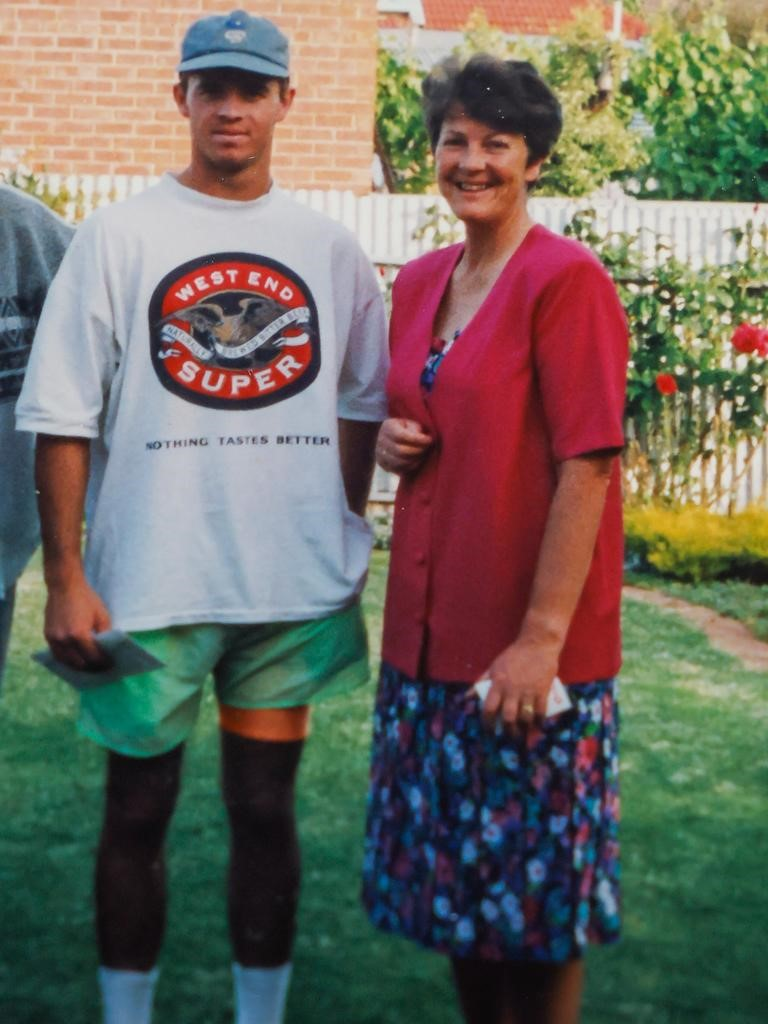Greg fights MND to help honour his beloved mum
Jessica Adamson | Wednesday June 4, 2025 | The Advertiser
 Greg Blewett lost his mum to MND and is now an ambassador for the fight against it. Picture: Russell Millard
Greg Blewett lost his mum to MND and is now an ambassador for the fight against it. Picture: Russell Millard
Greg Blewett was in a hotel room in Victoria when he took the call. It was the summer of 2014 and the respected former Australian Test cricketer was on a Cricketers Association Masters tour.
"I got the phone call from Mum, and I could tell something was wrong straight away," he said "She said: 'Honey, I've got MND,' and she just broke down. I'll never forget that phone call. I obviously came home straight away.
"Shirley Blewett, a "tough country girl" who grew up on a property in the Adelaide Hills had noticed her symptoms of Motor Neurone Disease several months before.
"In the lead-up, we knew something was wrong with Mum, the diagnosis just took a long time," Greg said. "We noticed it in her speech first; she just started to slur her words a bit. "Mum wasn't a big drinker, but we though: 'Is she having a couple nips of brandy without us knowing'?"
She wasn't and, worryingly, the symptoms weren't going away.
"It progressively got worse and at one point we thought she might have a ministroke," Greg said. "As it happens with MND, it just gets worse and worse, but it probably took six months to diagnose."
Within 12 months of that devastating diagnosis, Shirley Blewett was dead. She was just 69.
Eleven years on and in the lead-up to this weekend's 11th FightMND Big Freeze, Greg, a Channel 7 commentator, Triple M identity and podcaster, is for the first time speaking publicly about losing her.
Recalling the morning she passed away is still raw, difficult and emotional. "I had just come back from overseas, I'd been away for three weeks, I'd just got engaged to Katheryn," Greg said. "For a long time there it wasn't great, she was battling so hard, but you never really know how long they have.
"I asked Mum: 'Are you sure it's OK if I go?', she was like: 'Go, go, go'."
The pair spoke several times while Greg was away and were looking forward to seeing each other at the end of the trip. But it never happened.
"The morning we got back from overseas Dad rang and said: 'Listen, mum's really not well, you'd better come up quickly'," Greg says.
"We didn't quite make it, in between that phone call and me getting there, we lost her. "I just missed her literally by minutes, it was heartbreaking."
For Greg, his father Bob and older sister Kerry, it was impossible to believe someone who'd lived such a full life, could go so quickly.
"Mum was very sporty, she played a few games of basketball for Australia, loved playing tennis and netball and in later years she loved her golf," Greg said. "She was a workhorse who did everything for us. She loved her family, her Mum and Dad, her two sisters and her brother. All of my mates, they all loved Mum, she was just one of those very infectious loving people to be around."
Motor Neurone Disease is a rare neurodegenerative disorder that strips its victims of their independence, dignity and, in a final cruel blow, their voice.
With Voluntary Assisted Dying not an option for Shirley back then, her close-knit family had no choice but to watch her deteriorate, day by day.
"We, like any family living with MND, we really struggled with it," Greg said. "Seeing what Mum went through was brutal and absolutely heartbreaking. It's just hopeless, the slow deterioration, it's just horrible."
Shirley fought so hard to stay, but in every case, MND wins. It's a death sentence with no exceptions.

2752 Australians are currently living with MND and that number is expected to rise to 4304 by 2050.
There's no known cause, no effective treatment and no cure. It's claimed the lives of some great South Australians including dancer and director Roz Hervey, former State Liberal Party leader Dale Baker and mother of three Anna Penhall.
FightMND, a movement sparked by Australian of the Year Neale Daniher and two others, is working feverishly to find a cure. Despite his own prognosis, Daniher has inspired and united a nation, raising more than $115 million for drug and clinical trials. But the Beast is not backing down and there's no cure on the horizon. Last year, a conference of world-leading MND researchers heard it could take 30 years.
In the meantime, MND South Australia is doing what it can to provide local care and guidance for local patients and their families.
From a warehouse at Mile End they provide all the equipment a family might need.
MND SA Chairman Andrew Danson said with medical advances, people are being diagnosed sooner.
"That means they need the support earlier and typically, they're just asking us what's next, what do we do?" Andrew said. "If we can help them maintain some level of independence and dignity, I think that's a really important thing."
Andrew knows first-hand how insidious this disease is. On his birthday, January 13, 2020, he lost his father Peter Danson to MND at the age of 64.
"It just took away everything," Andrew said. "He was a very proud man, independent and larger than life. It took all that away from him."
MND costs the Australian health system $27 million a year but there's an enormous discrepancy between funding for patients, depending on their age. Anyone diagnosed before the age of 65, receives $240,000 more in care annually, because they qualify for the NDIS.
Three years ago, MND SA was granted $600,000 a year to help close that senseless gap by the Malinauskas government. They're hoping this week's State Budget will not only maintain that funding but increase it.
In March this year, my husband Dave lost his father to MND, just 12 weeks after a doctor delivered those dreaded words.
On the morning he was diagnosed, amid the shock, the disbelief and the tears, he sent a selfie to his children.
He'd put on an MND beanie and that radiant smile was still there.